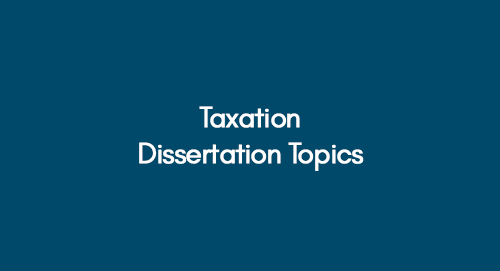
Taxation Dissertation Topics | List of 134 Interesting Ideas in 2025
December 26, 2022
Significance and Benefits of a Secondary Research Dissertation
December 26, 2022If you are a student looking for a Qualitative Research Dissertation Example, then you are at the right place at the right time.
Premier Dissertation offers a wide range of dissertation examples for students to review, and we have tabulated well-performing complete qualitative research dissertation examples below for you to benefit from. Review these before learning more about qualitative research dissertation writing.
- The Importance of Procurement Strategy & Impact on Construction Projects
- An Investigation of Cyberbullying and Its impact on Adolescents’ Mental Health in the UK
Writing a dissertation is a challenging feat. It takes meticulous research, careful organization, and dedicated hard work. High-quality, rigorous research is one of the most important elements of any successful dissertation. And when it comes to research, qualitative methods are essential. Let's examine why a qualitative research dissertation is so important and how to apply qualitative research effectively in your paper.
Get 3+ Free Custom Topics within 24 hours;
What is Qualitative Research?
A lot of students ask what qualitative research is. Qualitative research is a type of inquiry that seeks to understand social phenomena by looking at their meanings in the natural setting in which they occur. It involves gathering data on people's behaviour, beliefs and attitudes from interviews, surveys, focus groups or other observation methods. This type of research allows the researcher to gain an in-depth understanding of the topic or issue under investigation from the perspectives of those involved.
Why is Qualitative Research Important for Dissertations?
Qualitative research provides students with invaluable insights into their topics or issues, which can be used to support their arguments and claims made throughout the dissertation. This type of data collection can also help students identify patterns and trends, which can help them develop better theories and more meaningful conclusions about their topics or issues.
A qualitative research dissertation helps students understand the topic or issue they are researching and provides valuable insights into how various factors interact with each other and influence each other over time.
Finally, qualitative data can be used to support quantitative findings or vice versa – this combination ensures that dissertations are comprehensive in scope and thoroughly researched.
Application of Effective Qualitative Research To Your Dissertation
- The best way to ensure that you get meaningful results from your qualitative research dissertation is to plan ahead before you begin collecting data from interviews or surveys.
- Developing clear objectives and questions will help guide your data collection process so that you collect relevant information that supports your dissertation’s aims and objectives.
- Developing an effective sampling strategy will ensure that you collect enough data from different groups with varied experiences related to your topic or issue to draw meaningful conclusions about it.
- Lastly, ensure you keep detailed records throughout your data collection process – this will allow you to easily refer to your sources later in the writing process.
Strategies for Conducting Successful Qualitative Research
As a student conducting qualitative research, there are a few strategies you should keep in mind to ensure your project is successful.
1. Define Your Research Goals and Objectives
The first step in any successful qualitative research dissertation is clearly defining your goals and objectives. It will help you determine what kind of questions you need to ask and which participants are most likely to provide useful answers. It will also help you create a timeline for the project and identify any resources or financial support that may be needed along the way.
2. Choose an Appropriate Methodology
Once you have identified your goals and objectives, it's time to choose a methodology for your qualitative research. Many different types of methodologies are available, including interviews, focus groups, ethnography, content analysis, case studies, and more. Depending on your research question(s), it's important to pick the right method(s) to get reliable results from your study.
3. Creating an Interview Guide
Creating an interview guide is important for a successful qualitative research dissertation. An interview guide outlines the conversation between the researcher and the participant(s).
It should include general questions as well as specific questions that are tailored to the topic being studied. The questions should be open-ended to elicit responses that can provide more detailed information than a simple yes or no answer. Additionally, it's important to ask follow-up questions if there is any confusion about the initial response given by a participant.
4. Developing Rapport with Participants
Another key strategy for a successful qualitative research dissertation is developing rapport with participants. Establishing trust between yourself as the researcher and your participants will make them more comfortable and willing to share honest and detailed responses with you.
One way this can be done is by introducing yourself before beginning an interview or observation session so that participants know who you are and why you are doing this study. That can help ease their anxiety about talking to someone they don't know.
It's important to remain professional throughout your interactions—this will help build credibility with your participants, leading to better quality data collection results overall.
5. Analyzing Data Collected
The last strategy for successful qualitative research relates to analyzing the data collected from interviews or observations. After completing all your interactions with participants, it's time to start analyzing the data you have collected—this includes listening back over audio recordings (if applicable) and reading through transcripts (if applicable).
When examining this data, look out for patterns in responses that may have been overlooked during actual conversations/observations—these could potentially provide valuable insights into what was being discussed during those sessions!
Additionally, it may be beneficial to make notes on any themes that become apparent while analyzing the data collected—this can help distinguish between different topics being discussed within one session, which can save time in future analysis down the road!
6. The Benefits of Qualitative Research
- Qualitative research provides a different perspective than quantitative methods do. It allows you to explore the “why” behind certain phenomena or topics, which is often more difficult to uncover with numerical data alone.
- Qualitative research allows you to examine a topic from multiple angles, as it focuses on collecting information from interviews, surveys, observations, documents, and other sources.
- This type of research can help you gain valuable insights into the subject matter that may be obscure when using only quantitative methods.
- Qualitative research also helps to build credibility for your dissertation by providing evidence that supports your conclusions and results.
- By collecting input from various sources, you can provide additional support for your hypotheses and provide insight into potential implications or applications of your findings. This type of evidence is essential in creating an argument that is both reliable and valid.
- Finally, qualitative research allows you to understand better the context in which your study was conducted.
- Observing real-world situations or interviewing participants can provide invaluable information about how people think about or interact with the topic. By understanding this context better, you are better able to formulate meaningful conclusions about the validity of your argument or hypothesis.
Conclusion
In conclusion, qualitative research is essential for any successful dissertation since it provides invaluable insights into the topic or issue being investigated, which can be used to draw meaningful conclusions about it. Review the qualitative research dissertation examples provided by
Contact Premier Dissertations if you want to score stellar grades in your qualitative research dissertation.
More resources on dissertation section writing are shared below;
Get an Immediate Response
Discuss your custom requirements with our writers
Free Online Plagiarism Checker For Students
We will email you the report within 24 hours.
Upload your file for free plagiarism


























